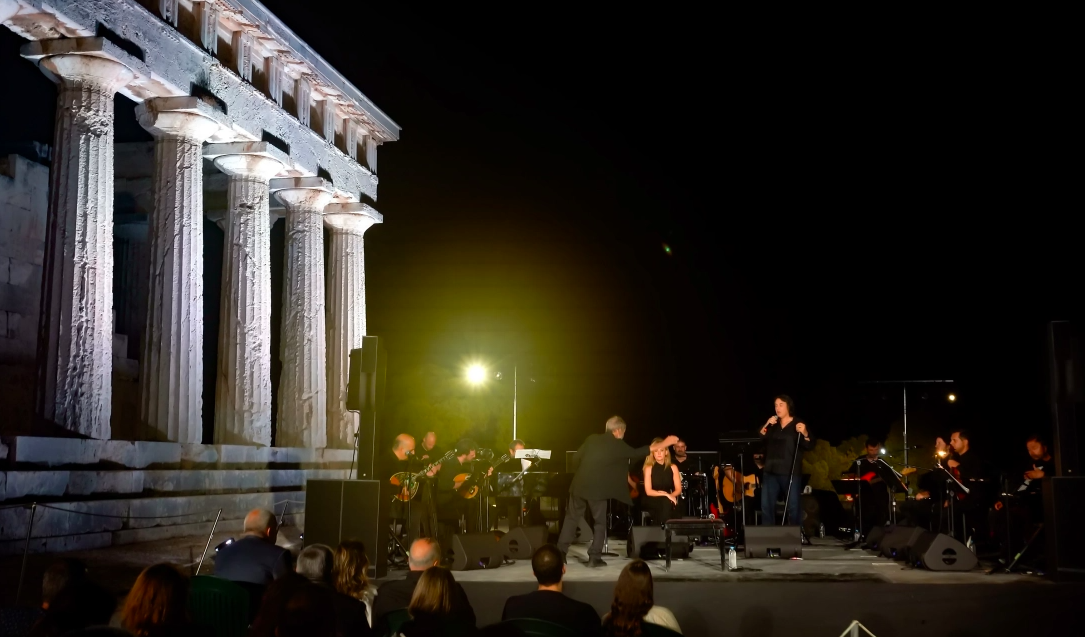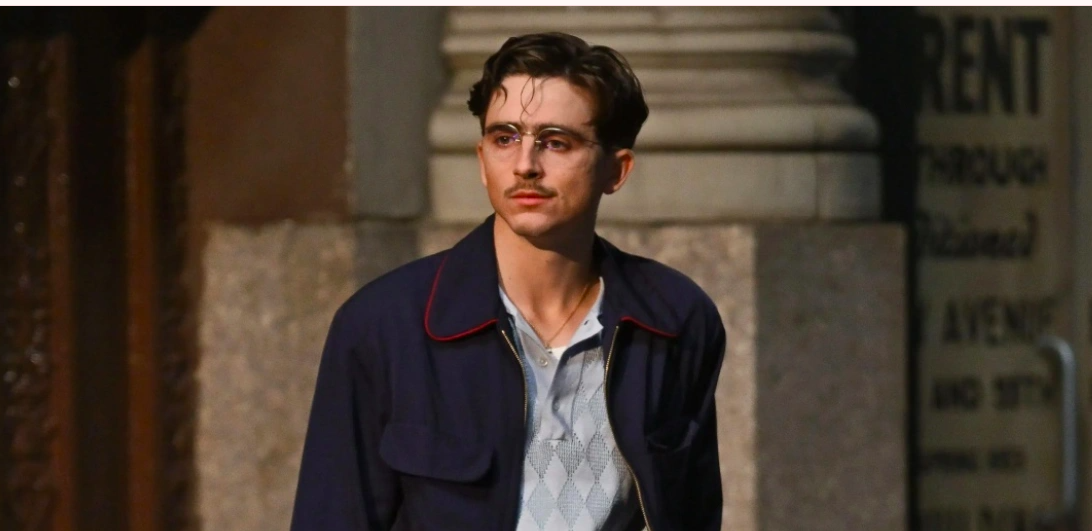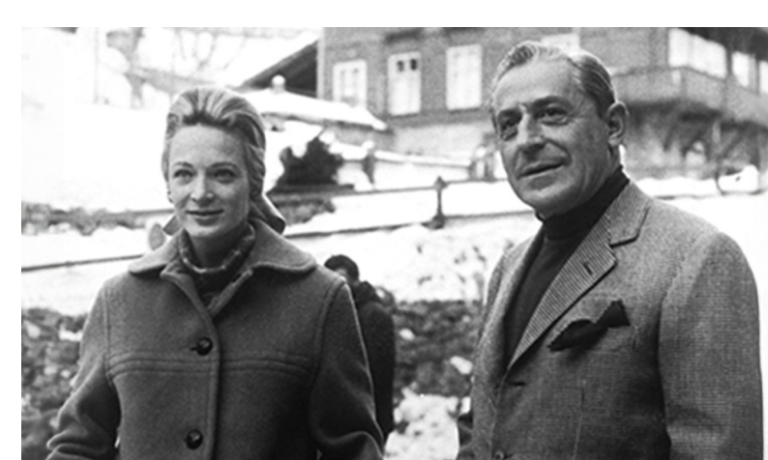Many years ago, Stavros Xarchakos hosted a dear friend, a renowned singer, at his second home in Aegina. During their stay on the island, he wanted to show him the beautiful Temple of Aphaia. Upon their arrival, the friend entered the temple and was left speechless with awe. For a moment, he stood on a stone, turned his head, and gazing at the temple, began to hum something that evolved into a song: the legendary “Erotokritos.” As they were leaving the archaeological site, the singer asked the composer, “Hey, Stavros, whose goddess is this temple?” When Xarhakos replied that it was dedicated to Aphaia Athena, the singer knowingly remarked, “No, it’s for Arethusa Athena…” The unforgettable singer was none other than the legendary Nikos Xylouris.

This wonderful story was shared by Stavros Xarchakos shortly before concluding a concert he held on Saturday evening at the majestic Temple of Aphaia, perched atop a pine-covered hill on the northeastern side of Aegina. There, in this enchanting setting, under the shadow of an impressive monument, as the sun set, high music and poetry intertwined with the uniqueness of ancient Greek culture. It was, as it turned out, a unique experience for the approximately 200 attendees fortunate enough to witness it.
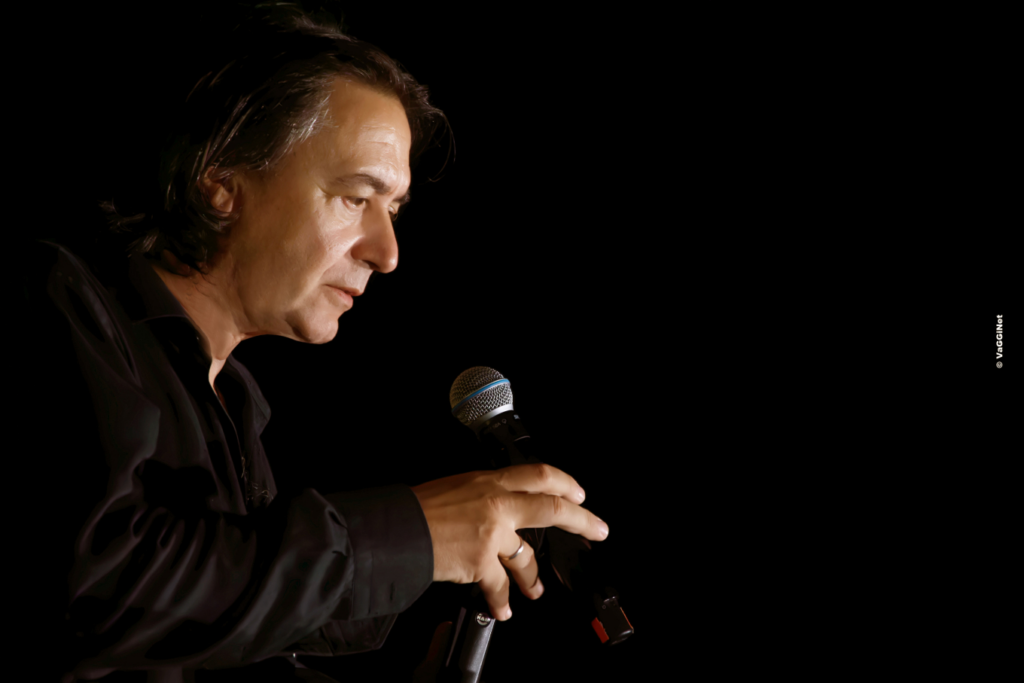
The natural, monumental backdrop filled with the melodies of Stavros Xarchakos, the exceptional performances of Giannis Kotsiras and Iro Saia, and the masterful execution of the accompanying musicians created an unforgettable atmosphere. The composer’s songs, retaining the authenticity of their timeless original versions, sounded reborn through Xarhakos’s intelligent new orchestrations, leading listeners down folk and artful paths, and occasionally onto traditional and jazz trails.
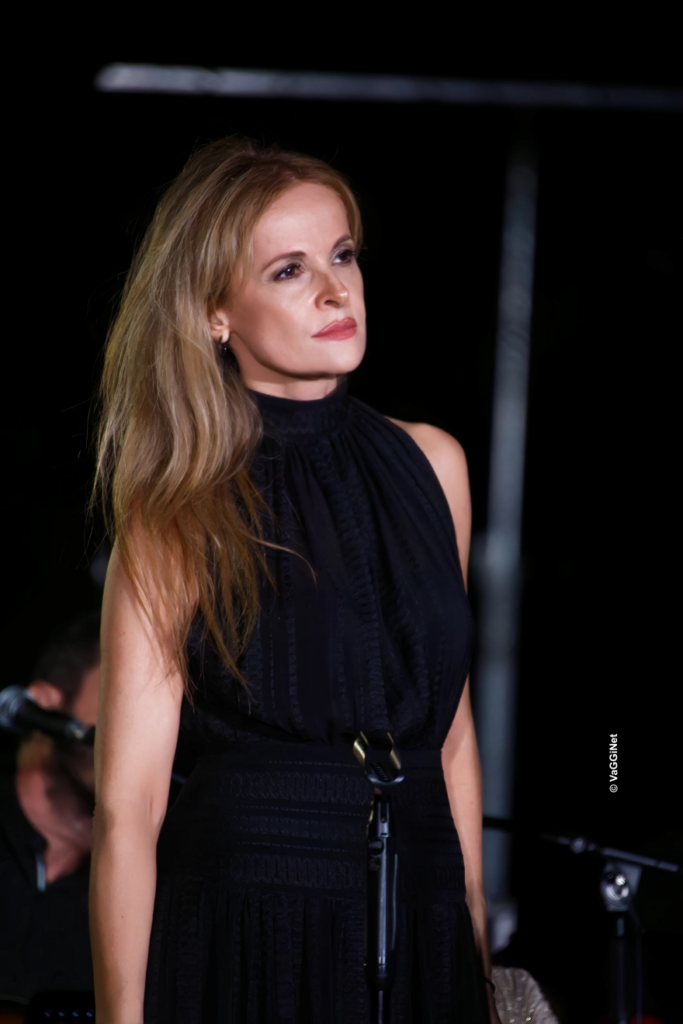
The evening began with the poetic lines of Nikos Gatsos, describing Greece most lyrically, wrapped lovingly and proudly in Xarhakos’s music and performed by Giannis Kotsiras. This was followed by the masterpiece “Mamá Mou Ellás” from “Rebetiko” and other gem-like songs that our great composer has gifted the Greek music scene. Among these were the haunting “How Can I Be Silent,” the beloved “Saturday Night in Kaisariani,” “White Day,” “Sew and Unsew,” “In the Years of Othon,” and “Erotokritos,” delivered by Giannis Kotsiras with remarkably mature interpretations, along with “Nyn Kai Aei,” “I Am Burning,” “The Net,” “Greetings to Venice,” “There Is No Beginning,” “The Moon Is Lost,” and “One Morning,” with the intensely emotional interpretations of Iro Saia.
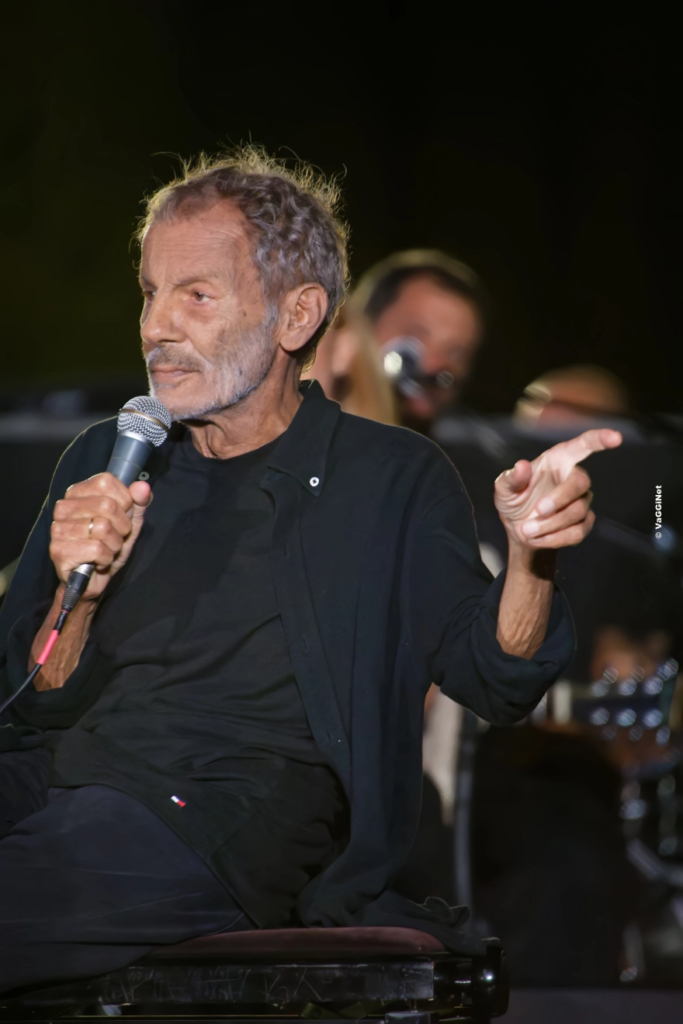
The maestro controlled and directed everything, from voices and instruments to breaths. All performers and musicians kept their eyes fixed on him, with a student-like focus, not wanting to miss a single movement, gesture, or glance. And rightly so, as it is a great fortune and a unique experience to be conducted by Stavros Xarchakos.

Equally magical is witnessing him conduct with his back turned but in a unique, ritualistic manner—a melodic ceremony executed with all his movements and senses. In those moments when his passion overflows, he rises to his feet, swept away by the volcanic power of music, transforming into an otherworldly creature, devoid of physical characteristics and age—a supernatural, gigantic form that envelops everything around him, leaving the audience, among whom were Charis Alexiou, Marios Fragoulis, Kostas Varotsos, and Smaragda Karidi, with a mixed feeling of excitement and emotion.

This wonderful musical evening was organized as part of a series of concerts that Stavros Xarhakos is performing in selected archaeological and cultural sites across Greece, generously sponsored by METLEN Energy & Metals and Mr. Evangelos Mytilineos, who was also present. The series began in mid-September at the Temple of Poseidon in Sounio, with concerts scheduled for the upcoming months at the Acropolis Museum (11/11) and the archaeological sites of Philippi, Delphi, Messene, and Eleusis.
Ask me anything
Explore related questions
